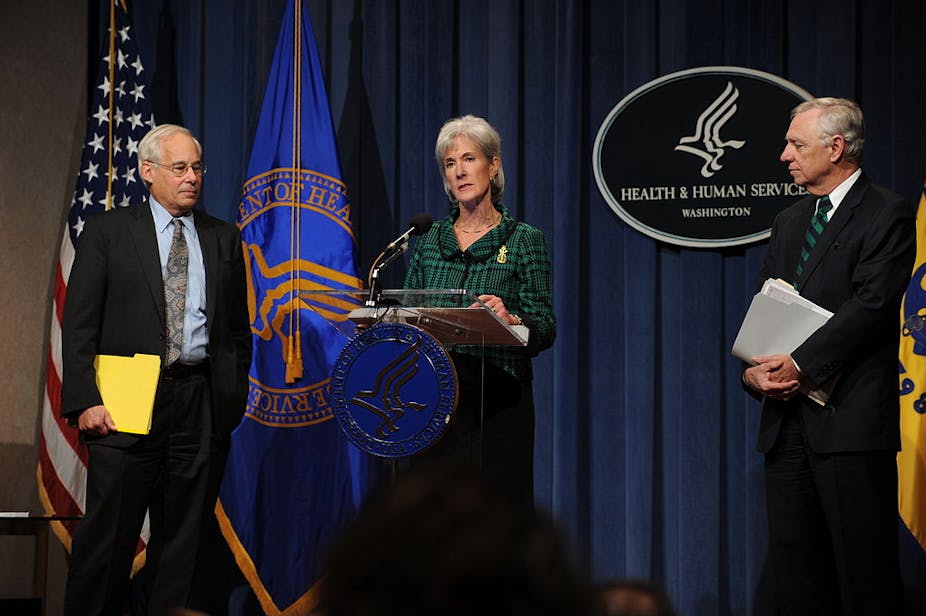One of US President Barack Obama’s key health advisers has just published a review in the aftermath of the Mid Staffordshire hospital scandal. Don Berwick’s review is both thoughtful and reflective but one of his key recommendations - to create criminal sanctions against health staff – will not make the NHS safer for patients.
Many patients, particularly elderly ones, suffered unnecessary indignities and avoidable harm at Mid Staffordshire.
The Francis report into the crisis concluded that patients were routinely neglected by a health trust more preoccupied with cutting costs and meeting targets rather than its responsibility to provide safe care. Patients’ calls for help to use the bathroom were ignored and some were left lying in soiled sheeting or sitting on commodes for hours. Events and failings there will probably go down in history as the blackest and bleakest moment for the NHS.
When the report was published in February, the government committed to appointing a advisory group of patients to consider the various accounts of what happened and the recommendations made by Robert Francis and others. The idea was that they would distill for the government and the NHS what lessons should be learned and what changes needed to be made.
Don Berwick, who worked on the long fought for Obamacare provisions in the US, is director and co-founder of the Institute for Healthcare Improvement in Boston. He was called in by the government to reflect on the Francis report and on patient safety.
Berwick’s review makes ten recommendations including that sufficient staff are available to meet the NHS’s needs now and in the future - staff should be well-supported and able to ensure safe care at all times; quality and safety sciences and practices should be a part of the initial preparation and lifelong education of all health care professionals, including managers and executives; and leaders should create and support learning and subsequently change, at scale, within the NHS.
But most controversial is his final recommendation:
We support responsive regulation of organisations, with a hierarchy of responses. Recourse to criminal sanctions should be extremely rare, and should function primarily as a deterrent to wilful or reckless neglect or mistreatment.
Berwick proposes the government creates a new general offence of “wilful or reckless neglect”, applicable both to organisations and individuals. Organisational sanctions might involve removing leaders and disqualifying them from future leadership roles, public reprimand of the organisation and, in extreme cases, financial sanctions - but only where that will not compromise patient care.
This recommendation is perhaps a bridge too far. I am not sure what can be gained by exposing health organisations and individuals to criminal sanctions in this way. There are already effective civil sanctions that can be imposed in civil law. The tort of negligence is one example, under which compensatory damages can be sought from employers, and for individuals deemed to have broken their legal duty of care, there are contract and professional sanctions.
There is also the concept of gross negligence. The Health and Safety at Work Act etc 1974 has sanctions within it, though it isn’t applied as much as it could be, as does the criminal law - such as the Corporate Manslaughter and Corporate Homicide Act 2007 for example. If an assault, for example, is proven this can also lead to criminal proceedings.
In terms of the Mid Staffordshire scandal, there have already been cases: last month, two nurses who failed to spot a patient who died at Stafford Hospital was diabetic were found guilty of misconduct, while two others were struck off the nursing register for falsifying A&E discharge times.
The sanctions suggested by the Berwick report look like a criminal/civil hybrid provision that we don’t need.
Rather than creating more criminal law, the focus for change should be on helping doctors, nurses and other health carers develop a new sense of professionalism, free them from a culture of targets and let them focus on putting the patient’s interests first.
Developing an ingrained patient safety culture in the NHS will take time, and it will be an incremental process.
Waving the big stick of criminal law around - the law that applies to murderers and thieves - will not help focus the minds of health carers who are essentially a highly committed, skilled and caring group.
Linking quality of services to litigation over other avenues, as Berwick also lays out in his review, won’t prove the best way forward. Creating new criminal sanctions in an already increasingly legalistic environment will not make the NHS any safer.

